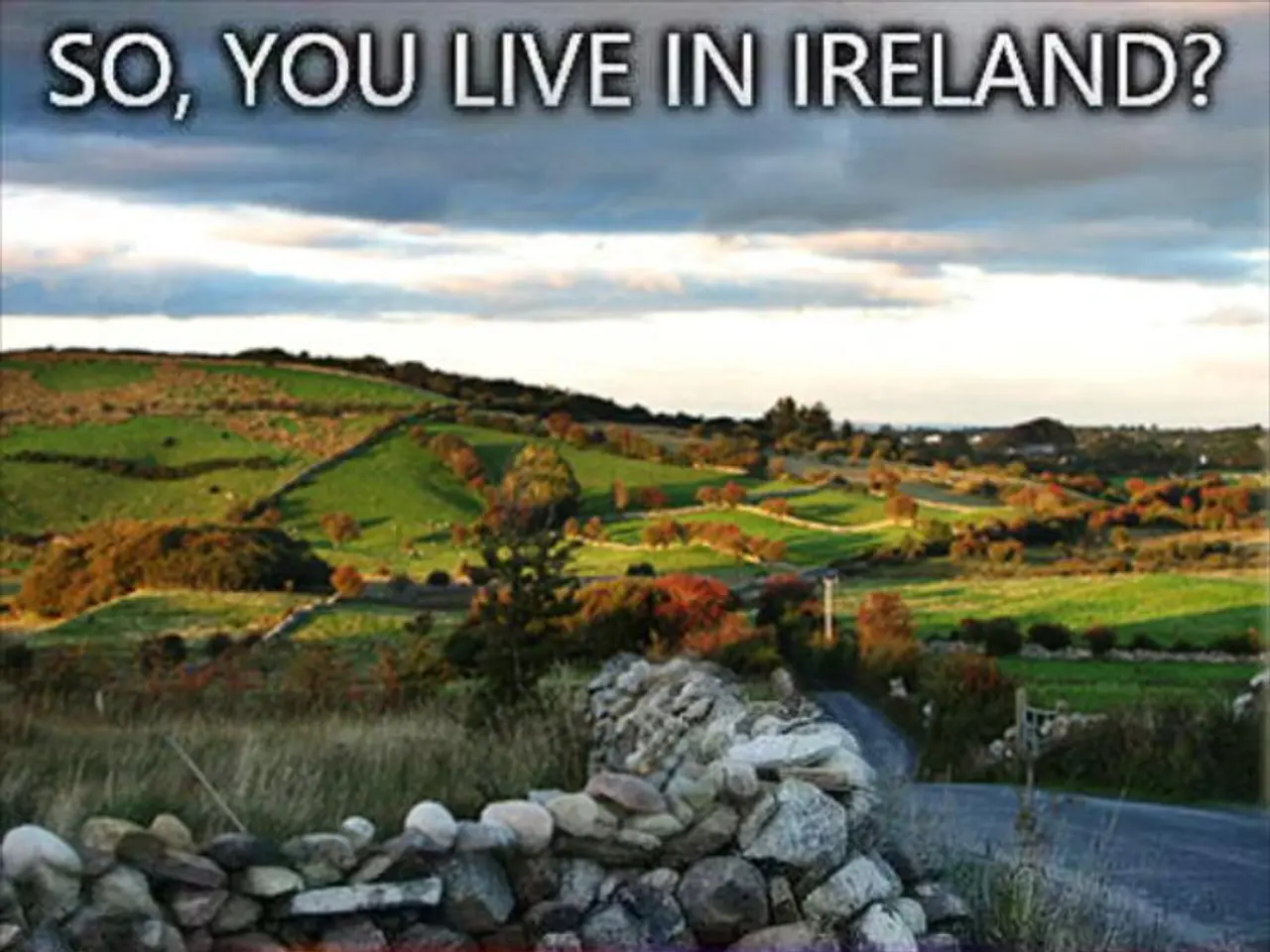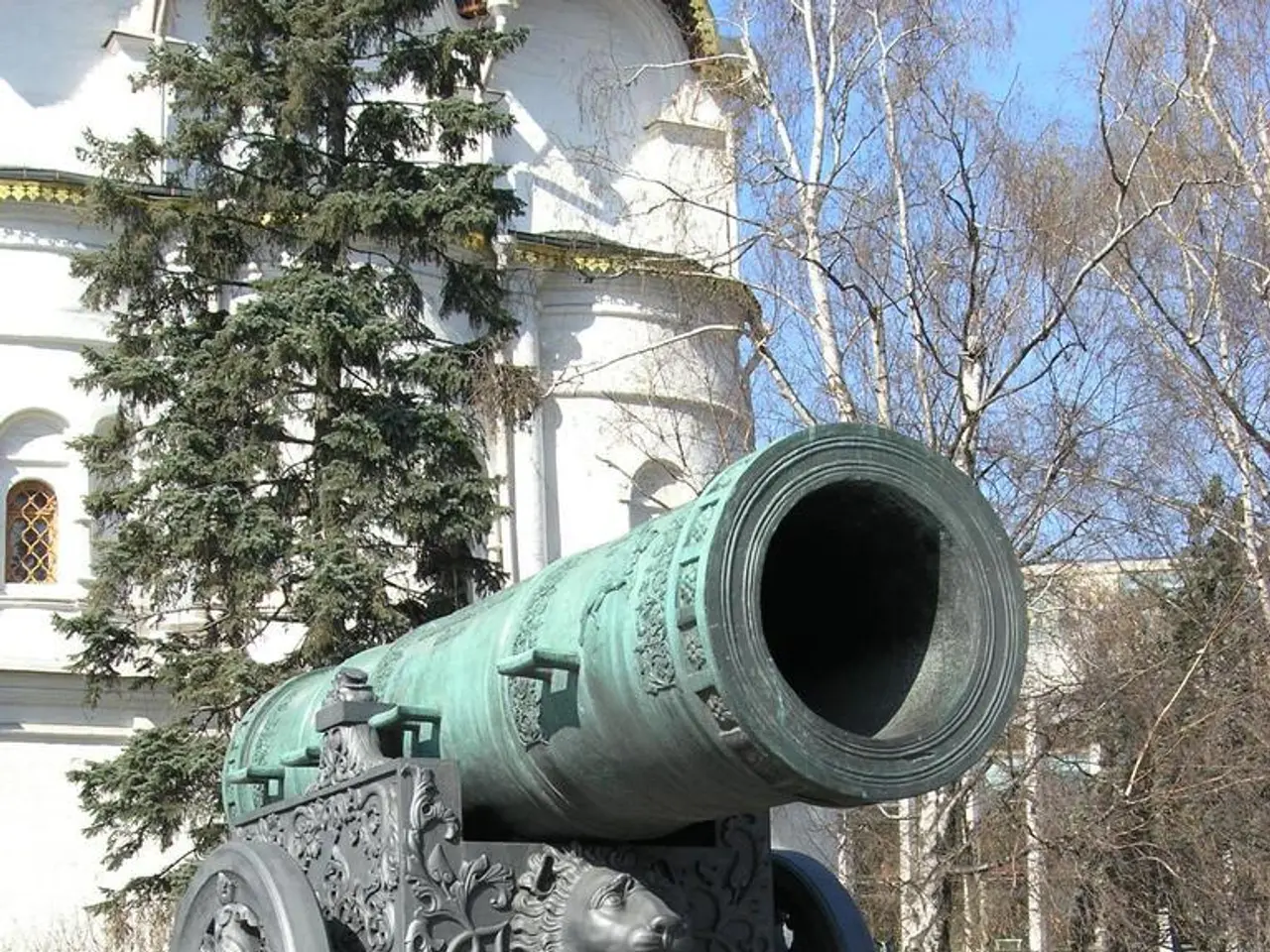Southern Europe and Turkey experience a reduction in fires, yet temperatures amplify
A series of wildfires continue to pose significant challenges in southern Europe and Turkey, with unfavorable weather conditions exacerbating the situation.
In northern Portugal, the wildfire near the town of Ponte da Barca remains a major concern, as forecasted heatwaves and temperatures above 40 degrees Celsius are expected to make suppression efforts more difficult [1]. Meanwhile, the environmental department of the regional government of Castile and León described the recent rainfall in Cuevas del Valle as "manna from heaven", offering some relief to firefighters in the area [2].
Across the border in Spain, firefighters in Cuevas del Valle, south of Ávila, received unexpected rain that almost completely extinguished the flames. However, weather conditions are expected to affect neighboring regions, potentially exacerbating the fire situation [2].
In Turkey, at least 14 people, including firefighters, have died in the fires. Large firefighting operations involve coordinated use of 11 aircraft and multiple helicopters alongside ground teams to tackle fires near urban areas such as Bursa and Izmir, often requiring evacuations due to the intensity of the blazes and wind-driven fire spread [1]. Fire intensity reduction is reported with combined aerial and ground support, highlighting the critical role of water-dropping planes and helicopters in managing fires exacerbated by dry, windy conditions [1].
Similarly, the Greek fire service is on high alert due to expected windy conditions in some areas, which can significantly hinder extinguishing efforts. The wildfire risk remains extremely high in the south of the island of Euboea, the east of Crete, and the region around Athens [3]. Firefighters in Greece employ a fleet of 11 planes and 8 helicopters supporting over 100 firefighters on the ground to control fires fueled by strong winds [1].
Beyond immediate firefighting tactics, there is a strong emphasis on proactive and integrated fire management strategies. Experts advocate developing defensive fire protection infrastructure such as water supply systems, sprinkler and irrigation installations to enable indirect fire fighting and prevention [2]. Preventive measures like controlled mowing of vegetation and ecosystem restoration are recommended to reduce fuel loads and wildfire risk, reflecting a nature-based, long-term approach to reduce fire vulnerability [3][4].
The use of controlled burning (prescribed fire) as a tactical measure is reported in other European contexts to reduce fuel buildup and manage fire behavior. The integration of ecosystem management, community involvement, and infrastructure aims to enhance landscape resilience against wildfires and reduce dependence solely on reactive firefighting [3][4].
Despite the challenges, firefighters in southern Europe and Turkey have successfully contained the recent wildfires. A second large fire near the Portuguese town of Arouca has also been brought under control [1]. However, more than 2,000 wildfires have broken out in Turkey this year so far, and more than 3,700 fires were registered between May and the end of July alone in Italy [5][6].
The heatwave in southern Europe can contribute to small negligences, arson, or a lightning strike quickly developing into difficult-to-control fires. Isolated fires were reported in the rural regions of Thrace and Izmir, but they were quickly extinguished [7].
Despite the ongoing challenges, efforts are being made to combat the wildfires and implement long-term strategies for fire management. The integration of air and ground firefighting coordination, defensive infrastructure, proactive land management, and community engagement offers a comprehensive approach to addressing wildfire risks in the region.
References
- Combating Wildfires in Southern Europe and Turkey
- Proactive Fire Management Strategies in Europe
- Nature-Based Solutions for Wildfire Risk Reduction
- Controlled Burning for Wildfire Management
- Wildfires in Turkey: A Growing Concern
- Wildfires in Italy: A Record Year
- Wildfires in Greece: The Latest Developments
- The ongoing wildfires in southern Europe and Turkey are causing concern, with science and weather forecasting playing crucial roles in understanding and managing the situation.
- In the context of climate-change, environmental-science is shedding light on proactive and integrated fire management strategies to reduce wildfire risk and vulnerability.
- General-news outlets report on the toll of wildfires, not just on the environment but also on crime-and-justice, as arson is a common factor exacerbating the wildfire problem.
- Accidents and fires are becoming increasingly frequent due to weather conditions, prompting a need for more effective weather-forecasting and firefighting technologies.
- Despite the recent success in containing wildfires, there remains a need for continued efforts and collaboration in fires-fighting, environmental-science, and community engagement to mitigate future wildfire risks.








